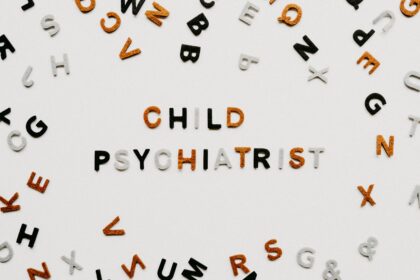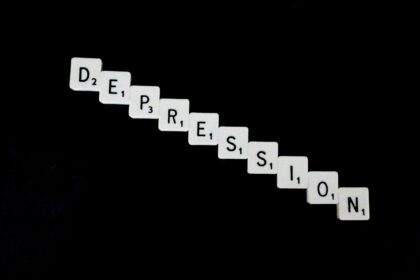There’s something truly magical about music – how a simple melody can lift our spirits, soothe our worries, and even heal our hearts. In a world that often feels overwhelming and chaotic, playing music offers a gentle refuge, a way to connect with ourselves and others on a deeper level. Whether it’s strumming a guitar, tickling the ivories, or simply humming your favorite tune, engaging with music has the power to transform our mental health in remarkable ways. In this article, we’ll explore the emotional and psychological benefits of making music, revealing how this timeless art can be your secret weapon for boosting mental well-being today.
The Science Behind Music and Emotional Wellbeing
When you strum a chord or tap a rhythm, a symphony of neurochemical reactions springs to life within your brain. Music engages the limbic system-our emotional center-releasing dopamine, the feel-good neurotransmitter, which creates a natural high and soothes anxiety. This neural dance doesn’t just elevate mood; it fosters emotional resilience by helping to process and release pent-up feelings. Playing music actively rewires your brain, enhancing neural plasticity, which means you’re literally strengthening the mental pathways tied to emotional regulation and cognitive flexibility.
Beyond biochemistry, the act of making music offers powerful psychosocial benefits:
- Mindful focus: Concentrating on melodies pulls you away from stressors and into a state of flow, promoting mindfulness.
- Expression without words: Music becomes a safe outlet for emotions that are often hard to articulate.
- Community and connection: Jamming with others reduces feelings of loneliness and amplifies empathy.
These combined elements make music not just an art, but a transformative healing tool, tailor-made for nurturing your mental health every day.
Discovering the Power of Rhythm to Relieve Stress and Anxiety
There’s an undeniable magic in rhythm that taps directly into the core of our nervous system, soothing the mind like a gentle wave on a stormy sea. When we immerse ourselves in musical beats-whether by drumming, clapping, or tapping along-we trigger a natural cascade of calming chemicals in the brain, such as dopamine and serotonin. These neurochemicals act as stress antidotes, easing anxiety by recalibrating our bodies from a state of tension to one of relaxation. This rhythmic healing bypasses the clutter of overthinking, allowing the heart and mind to synchronize with a steady, grounding pulse that brings instant relief from overwhelming emotions.
Embracing rhythm as a tool to alleviate stress offers simple yet powerful rituals anyone can adopt. These practices not only reconnect us to the present but also nurture resilience over time. Some ways to harness the therapeutic power of rhythm include:
- Body percussion: Using hands and feet to craft personal beats.
- Drum circles: Joining groups to share collective rhythm and uplift energy.
- Guided rhythmic meditation: Combining steady breath with gentle tapping or music.
- Dancing freestyle: Letting the pulse move you to release tension physically and emotionally.
These practices remind us that rhythm is more than sound-it’s a transformative force capable of resetting the mind’s balance and restoring emotional harmony.
Incorporating Music into Your Daily Routine for Lasting Mental Health
Integrating music into your everyday life doesn’t require grand gestures or long hours of practice. Start small by carving out moments where melodies naturally weave into your routine. Whether it’s tuning into your favorite song during your morning coffee, humming softly while cooking, or strumming a few chords on your guitar before bed, these simple interactions act as quiet anchors amidst the chaos. Music can serve as a personal sanctuary, a place where emotions find release and clarity. The rhythm becomes a steady heartbeat for your mind, gently aligning thoughts and feelings, and fostering a sense of calm that lasts beyond the notes.
Consistency is the secret ingredient that transforms music from mere background noise into a powerful therapeutic tool. By making it a regular part of your day, you foster a habit that nurtures resilience and joy. Here are some ideas to cultivate this enriching practice:
- Create a personalized playlist with songs that uplift or soothe, and let it be your emotional toolkit.
- Use music as a mindful practice, paying close attention to the lyrics, instruments, or the feelings evoked during listening.
- Join a community music group or take a casual jam session to connect socially and share creative energy.
- Experiment with different genres to discover what resonates deeply within your soul on any given day.
Choosing the Right Instruments and Songs to Nourish Your Soul
When you select an instrument that resonates deeply with your emotions, the journey to healing becomes more profound. Whether it’s the delicate whisper of a flute, the grounding rhythm of a drum, or the soulful hum of a guitar, each instrument carries a unique voice that can echo your inner world. Think beyond the traditional – let your heart guide you. Does the piano’s keys feel like unlocking a floodgate of feelings? Or perhaps the vibrations of a cello soothe your restless mind? By embracing the instrument that truly speaks to you, you cultivate a sacred space for self-expression and emotional release.
Your choice of songs holds equal power. Music that stirs your spirit and aligns with your current mood serves as a gentle catalyst for emotional transformation. Consider songs with lyrics that affirm your truth or melodies that evoke memories of joy and hope. Creating a playlist that mixes uplifting tunes with calming harmonies can make a remarkable difference in your mental outlook. Try experimenting with genres-from soulful jazz to calming classical, or even nature-inspired soundscapes-and observe which melodies gently nurture your soul.
- Opt for instruments that feel natural or exciting to play.
- Choose songs that reflect your emotional journey and personal growth.
- Allow yourself to explore unfamiliar musical styles without judgment.
- Use music as a daily ritual for mindful healing and grounding.
Concluding Remarks
As we wrap up this exploration of music’s incredible healing power, it’s clear that the simple act of playing an instrument or singing isn’t just about creating sound-it’s about nurturing your soul. Music reaches deep into the corners of our mind that words alone can’t touch, lifting us up when we’re low and providing a safe space to express the emotions we struggle to face. So, whether you pick up a guitar, tap out a rhythm, or just hum along to your favorite tune, remember that every note played is a step toward greater mental well-being. Your journey to healing and happiness can begin today-just press play and let the music work its magic.















